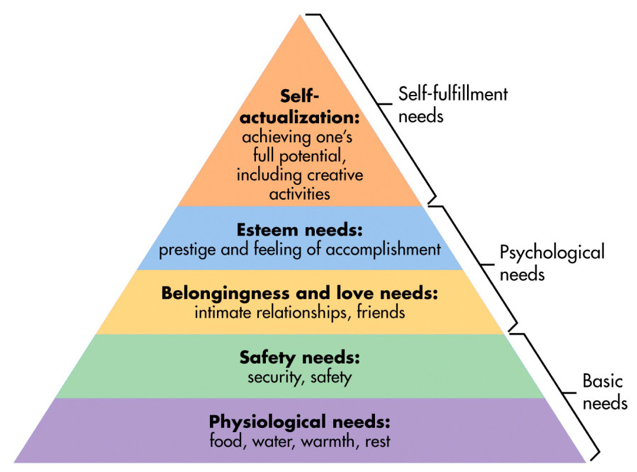Law firms that operate under the premise that money is the top motivator for shareholders are likely underachieving, wasting the firm’s potential, and are at risk of serious crisis or worse, particularly in the event of any financial setback.
In Arie De Geus’ book, The Living Company, he explores companies that have been in existence for hundreds of years (some as old as 700 years!) such as Japan’s Sumitomo and Sweden’s Stora. De Geus estimates that a corporation’s natural lifespan could easily be at least 200-300 years. However, most commercial corporations today “exist at an early stage of evolution; they develop and exploit only a small fraction of their potential,”1 and are out of business in fewer than 50 years.
To the companies that have survived hundreds of years, “assets—and profits—are like oxygen: necessary for life but not the purpose of life.”1 “Companies die because their managers focus on the economic activity of producing goods and services, and they forget that their organizations’ true nature is that of a community of humans.”2
Boeing is suffering today for this very reason. Two recent Boeing 737 Max crashes were found to have resulted from “atypically substandard practices and blind adherence to the bottom-line…a fundamental issue was the company’s departure from a 100-year-plus culture of evidence-based processes, quality, and safety espoused by founder William Boeing, in favor of an expedient focus on market factors.” Of Boeing’s 2025 goals for the company, the quality-related goal “Design, Manufacturing, Services Excellence” is listed 4th after three sales and profitability measures (“Market Leadership,” “Top-quartile Performance and Returns,” and “Growth Fueled by Productivity”).
Like Boeing, law firms are reputation-driven organizations for which reputation can drive more than a quarter of the firm’s market value.3 Let us learn from Boeing’s prioritization of sales and profitability over all else.
We devote most of our waking adult lives to our work. As professionals, we spend the majority of our weekday waking hours preparing for work, commuting to and from work, working, and thinking about work.
As professionals, we spend the majority of our weekday waking hours preparing for work, commuting to and from work, working, and thinking about work.
In exchange for our valuable time, we want more than just a paycheck.
Because so much of our life relates to our work, we want work-time to be meaningful and to bring us a sense of stability, purpose, growth, community, and satisfaction. We want more than a paycheck.
In fact, Jon Lindsey, founding partner of Major, Lindsey & Africa, a premier global legal recruiting firm, was quoted in a recent Law.com article saying: “I think the cliché is that lawyers only care about money. I’ve been doing this for almost 30 years, and I can count on the fingers of one or two hands partners who came to me and said, ‘Put me in the firm that pays me the most.”
Our priorities evolve over time and up Maslow’s Hierarchy of Needs.
We want it all. However, according to research by psychoanalyst Erik Erikson and a survey of 26,000 professionals on LinkedIn, our priorities change as we age. “Young adults tend to focus foremost on establishing an income and home, seeking out a life partner and potentially starting a family. As people age, they start to think more about their contribution to society.”4 The evolution over time of our priorities follows the ascent of Maslow’s Hierarchy of Needs.
https://www.simplypsychology.org/maslow.html
Regardless of age, the survey revealed that “74% of candidates want a job where they feel like their work matters. That means both companies and employees should make creating meaningful work a priority…If a company can help individuals better find purpose at work, then the organization will benefit from having more productive and successful employees.”
Some lawyers are feeling overwhelmed and it appears the legal profession is experiencing a mental health crisis.5
If you googled “mental health crisis in the legal profession” in early February 2020, your search would have produced about 158 million results. Lawyering is the loneliest profession. According to a recent survey, “more than 60 percent of lawyers ranked above the standard on the loneliness scale. The next most lonely professionals were 57 percent of engineers, 55 percent of research scientists, 51 percent of workers in food service, and 45 percent of workers in education and library services.” Loneliness is linked to depression and substance abuse. On Maslow’s Hierarchy of Needs, having intimate relationships and feeling a sense of belonging are essential psychological needs. Often, the time requirements and isolating circumstances of being a lawyer reduce one’s ability to maintain intimate relationships and a sense of belonging in a community other than one’s firm.
Does your firm serve a human-centric purpose that will withstand the test of time?
According to the Oxford dictionary, success means accomplishing one’s purpose. Your firm may have any combination of a vision or mission statement or even a set of values but may not be familiar with a purpose statement. In short, a vision statement describes where your firm sees itself in the future –What your firm wants to be; a mission statement describes How you’ll get there; and your firm’s purpose describes Why your firm exists and is guided by your firm’s values and beliefs. When crafting a purpose statement, make it human-centric and something that can survive through our changing world by addressing an ongoing human-centered need. Let’s use a hypothetical example with a store we will call Radio Hut. If Radio Hut’s purpose was to sell radios, when cell phones were introduced and radios were no longer the only option for receiving timely news and music on the road, the store would have lost some of its relevance in the world. However, if the purpose of Radio Hut had been “to supply people with timely information from around the world anytime, anywhere,” or something more human-centric than product-centric, then Radio Hut might survive in an era where the radio as a particular product becomes outdated but the purpose continues to serve a need.
The most successful, long-lasting companies have 4 things in common. Does your firm have these traits?
De Geus and his team identified 4 traits that were correlated with the longest-surviving, adaptive companies.
- Conservatism in Financing. Not consuming all the profit today but saving some for a rainy day and for when the going gets tough and for when the firm wants to invest in a strategic move to help it survive in the long run. To the longest-surviving companies, “assets — and profits — are like oxygen: necessary for life but not the purpose of life.”1
- Sensitivity to the World Around Them. Through wars, technological change, economic and political cycles, these companies stayed attuned to the world around them and adapted as necessary.
- Awareness of their Identity. “Employees all felt like parts of a whole…The feeling of belonging to an organization and identifying with its achievements is often dismissed as soft. But case histories repeatedly show that a sense of community is essential for long-term survival.”
- Tolerance of New Ideas. These companies made room for risk-taking and “activities in the margin: experiments and eccentricities that stretched their understanding…By definition, a company that survives for more than a century exists in a world it cannot hope to control.” As the old adage goes: if you can’t beat them, join them. With a world changing around us at a rate we cannot control, we have to try to change with it if we want to survive.
How Will You Measure Success?
The book How Will You Measure Your Life? by the late Clayton Christensen explores how some overachievers feel unfulfilled and how being successful in work isn’t everything in life. This recent article in HBR, “What Happens When Your Career Becomes Your Whole Identity,” also explores the negative impact that becoming “enmeshed” with our careers can have on our lives. A fulfilling life cannot be attained solely through seeing success at work and success at work cannot be sustained if we are not fulfilled in other areas of our lives.
Taking a multi-pronged view of what it means for a law firm to be successful will allow individuals, the firm, its clients, and the community at large to reap more success and wholesome outcomes from the firm’s existence.
In addition to healthy financials, a firm needs a healthy workplace culture (which, among other things, tolerates new ideas and provides a sense of identity and purpose to its members) and a thoughtful strategy (which, among other things, takes the outside world into account and includes a plan for how to reinvest profits). The resources, culture, and strategy must be aligned for the firm to compete and thrive well into the future, delivering positive outcomes to individual employees, the firm as a business, its clients, and the community, through good times and bad. True, lasting success looks like more than money.

